Scotland’s showpeople and a way of life painfully on hold
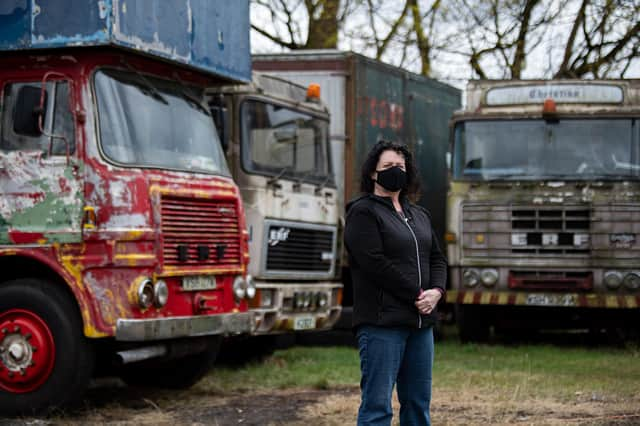

Normally, they are long on the road, following well-worn summer routes to cities and towns all over Scotland where they have gathered for generations to set up fairs, do good business and see their extended families, their traditions carried on for another year.
But for the second season-in-a-row they are stuck in their yards off main roads and industrial estates, usually in the hidden pockets of the Central Belt. The pandemic cancelled at least 525 established fairs in Scotland last year, as well as around 150 other events lost.
Advertisement
Hide AdAdvertisement
Hide AdFor another summer, there are no waltzers or sideshows, no smell of hot sugar from the candy floss stand or the even sound of the generator that keeps it all going. The shows, or switchies depending where you are from, are unlikely to be coming to town.
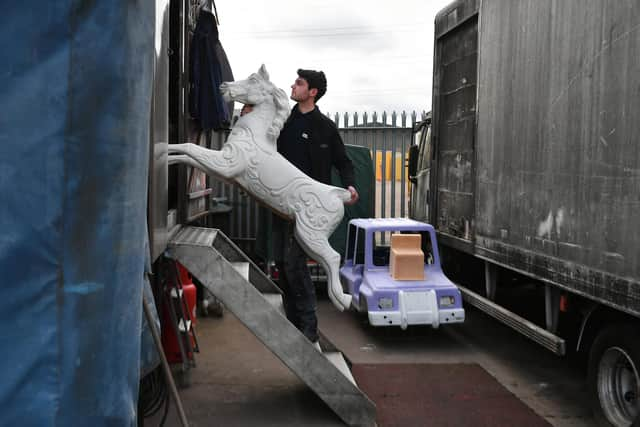

At Cuningar Estate Showman’s Yard in Rutherglen, the evergreen Spring traditions of painting, maintaining and preparing ahead of the season have been followed, up to a point.
But there are only so many times you can touch up the same side car or unnecessarily tinker with a generator that is running fine. There are an estimated 6,000 showpeople in Scotland and the forced standstill is unbearable for many.Candace Thomas, 29, is one of the 200 or so residents on this yard, which is immaculately clean and ordered. A graduate of Glasgow and Cambridge universities, Candace, who studied sociology, travelled with the shows across Scotland before her education took her around the world.
She returned as lockdown took hold. Among her neighbours are a lawyer, a veterinary nurse and a graduate in forensic science. All have showpeople blood.
Candace said: “We talk about this thing about getting itchy feet. As the weather changes and the sun comes out, straight away your mind goes to Perth. We should be able to see the yellow on the flowers going through Stirling by now.
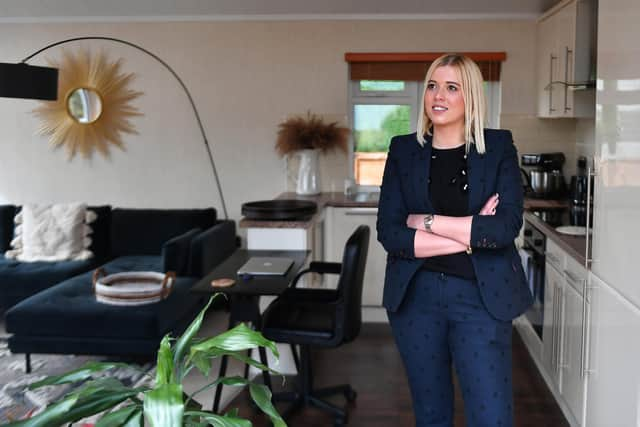

“To me, that yellow symbolises the shift in the season.
“The fact that we can’t do it again, for a second year, well it is devastating. It’s how we earn our money and support our families. It’s how we live our lives
"This would have been the time of year that we are getting ready for the fairs, washing and cleaning the equipment, maintaining, paying for our insurances, there might be a son who needs to go through his HGV licence.
"So many things that are year-to-year are tradition. Instead, we are just sitting here watching TV.”
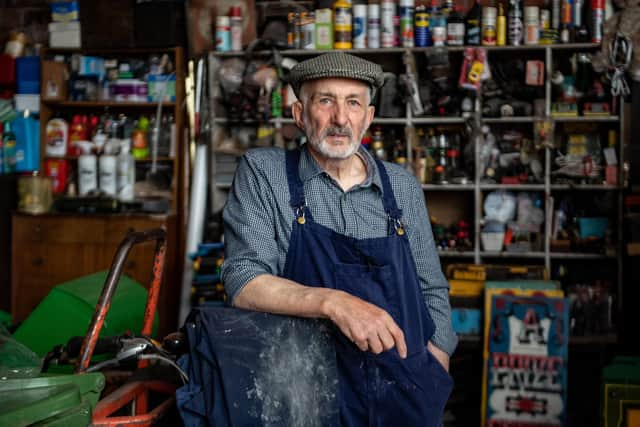

Advertisement
Hide AdAdvertisement
Hide AdOne showwoman, whose yard is on the edge of Possil, half-joked she never knew what the place looked like in the summer – because she was never there. Now, she hasn’t left the yard, which is now overlooked by flats, for 18 months.
Showpeople are for the first time in their lives unable to venture to the places that have defined their culture, such as the Spring and Rood Fairs in Dumfries, where their people have gathered over centuries.
The Kirkcaldy Links Market, Europe’s largest street fair which was given a Royal Charter in 1644 but started some 300 years earlier, signals the start of the show season for many. It attracts tens of thousands of people but has been cancelled two-years-in-a-row.
Jordan Evans, 35, member of the Showmen’s Guild of Great Britain Scottish Section, is a seventh generation showman with his family travelling with the Waltzers for decades. The ride remains locked up in a shed.
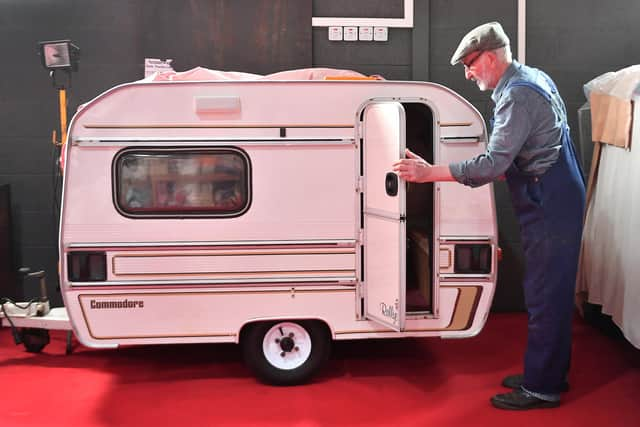

He said: “I really believe that there will be few showmen that will recover from this. The current situation has been very. To be honest, a lot of showmen are a bit bewildered as what to do next.”
As the pandemic hit, showpeople were already facing a loss of sites due to land sale and increasing costs of public entertainment licences in Scotland, with the regulations described as more expensive and complex than anywhere else in the UK or Europe.
Meanwhile, competition from all-in-one leisure complexes, where cinemas and bowling alleys sit under one roof, continues and the pull of the fair perhaps fades.
Last December, the Travelling Showpeople Fund opened, offering one-off Scottish Government grants of £10,000 to support those who earn at least 50 per cent of their annual income by working at established funfairs.
Advertisement
Hide AdAdvertisement
Hide AdBroadly welcomed, the funds were not open to all given showpeople commonly take on other forms of income to supplement the travelling season.
Over lockdown, many more took on jobs such as delivery drivers, warehouse workers and cleaners.
Showman Wheatley Harris, 47, of Carntyne, said: "There’s going to be a lot of showmen who don't bother travelling anymore, because they’ve gone in jobs and they’re probably actually getting more money. They’re better off.”
Among the difficulties, a major positive is being felt. Scotland’s Census will include a showman and showwoman option in the ethnic groups for the first time next year.
For Candace, who works with the Fair Scotland advocacy and support project for Showpeople, it’s an important moment.
She said: “It’s the recognition we deserve as a fully established, centuries old community; but also as a community of true Scots. We deserve to be seen, to be counted.”
For showpeople, the category also makes an important distinction from Scotland’s Gypsy/Traveller community. While the two respect each other, they have different languages, economic practices, cultural norms, living circumstances and belief sets.
For Dr T S Beall, founder member of Fair Scotland who has researched the impact of Covid-19 on the community for the Fair/Not Fair project, added: "Getting showpeople on the census is unbelievably important. It helps evidence this hidden community across Scotland.
Advertisement
Hide AdAdvertisement
Hide Ad“The community holds a unique part in Scotland’s cultural heritage and I think people need to hear that it is under threat and could very easily disappear. That was true prior to Covid and unfortunately, there is even greater jeopardy now.”
For Scotland’s showpeople, those yellow flowers by the roadside cannot come into view soon enough.
